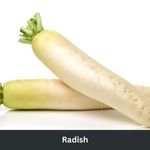Do you know What is called different Vegetables in Sanskrit? Here we share some widely used vegetable names in the Sanskrit language.
Vegetable Name in Sanskrit | संस्कृते शाकस्य नाम
Potato is a very famous vegetable and we all know its name in a different language but do you know what we call Potato in Sanskrit?
Potato, a widely known and consumed vegetable, is referred to as “आलुकम्” (Ālukam) in Sanskrit. The term आलुकम् is used in classical texts and is still recognized in contemporary discussions about Sanskrit terminology. Here we share 20+ Vegetables Name in Sanskrit Language with English name and Transliteration
| Vegetable Name in English | Vegetable Name in Sanskrit (Transliteration Name) |
|---|---|
| Tomato | विट्टफलम् (Viṭṭaphalam) |
| Potato | आलुकम् (Ālukam) |
| Onion | पलाण्डुः (Palāṇḍuḥ) |
| Garlic | लशुनम् (Laśunam) |
| Carrot | गृञ्जनकम् (Gṛñjanakam) |
| Spinach | पालकः (Pālakaḥ) |
| Cabbage | कुष्माण्डः (Kuṣmāṇḍaḥ) |
| Cauliflower | शाकगोभी (Śākagobhī) |
| Pumpkin | कुम्भलम् (Kumbhalam) |
| Cucumber | कर्कटी (Karkaṭī) |
| Brinjal/Eggplant | वृन्ताकम् (Vṛntākam) |
| Peas | हरीतकम् (Harītakam) |
| Green Chilies | हरितमरीचिः (Haritamārīciḥ) |
| Lady Finger/Okra | भिण्डी (Bhiṇḍī) |
| Radish | मूलकम् (Mūlakam) |
| Ginger | आर्द्रकः (Ādrakaḥ) |
| Bitter Gourd | करवेल्लकः (Karavellakaḥ) |
| Sweet Potato | रक्तालुकः (Raktālukaḥ) |
| Bottle Gourd | अणकदुम्बरः (Aṇakadumbaraḥ) |
| Beetroot | रक्तमूलकम् (Raktamūlakam) |
Culinary and Medicinal Uses of Vegetables with Sanskrit Names

Tomato
Sanskrit Name: विट्टफलम् (Viṭṭaphalam)
Culinary Uses: Used in salads, sauces, soups, and various curries. Adds a rich flavor and color to dishes.
Medicinal Uses: Rich in antioxidants, vitamins A and C, and lycopene. Helps in reducing the risk of heart disease and cancer.

Potato
Sanskrit Name: आलुकम् (Ālukam)
Culinary Uses: A staple in many dishes like curries, fries, and mashed potatoes. Versatile in cooking methods.
Medicinal Uses: Good source of carbohydrates and energy. Contains potassium and vitamin C. Aids in digestion and skin health.

Onion
Sanskrit Name: पलाण्डुः (Palāṇḍuḥ)
Culinary Uses: Used as a base in most savory dishes, including curries, soups, and salads. Adds flavor and aroma.
Medicinal Uses: Known for its anti-inflammatory properties. Helps in boosting immunity and regulating blood sugar levels.

Garlic
Sanskrit Name: लशुनम् (Laśunam)
Culinary Uses: Adds pungent flavor to dishes, used in marinades, sauces, and pickles.
Medicinal Uses: Has antimicrobial properties. Helps in reducing blood pressure and cholesterol levels.

Carrot
Sanskrit Name: गृञ्जनकम् (Gṛñjanakam)
Culinary Uses: Eaten raw in salads, cooked in stews, soups, and desserts like carrot halwa.
Medicinal Uses: Rich in beta-carotene, good for vision and skin. Contains antioxidants and fiber.

Spinach
Sanskrit Name: पालकः (Pālakaḥ)
Culinary Uses: Used in salads, soups, and cooked dishes, adds nutrition and flavor.
Medicinal Uses: High in iron and calcium, supports blood and bone health, rich in antioxidants.

Cabbage
Sanskrit Name: पत्रपुष्पं (Patrapuṣpam)
Culinary Uses: Used in salads, coleslaw, stir-fries, and soups, provides crunch and texture.
Medicinal Uses: High in fiber and vitamins, aids digestion, supports heart health and immunity.

Cauliflower
Sanskrit Name: शाकगोभी (Śākagobhī), फलिनी (Phalinī)
Culinary Uses: Roasted, steamed, or mashed, used in curries, soups, and as a low-carb rice alternative.
Medicinal Uses: Rich in vitamins C and K, antioxidants, supports bone health and detoxification.

Pumpkin
Sanskrit Name: कुम्भलम् (Kumbhalam), कुष्माण्डः (Kuṣmāṇḍaḥ)
Culinary Uses: Roasted, boiled, or pureed, used in pies, soups, and savory dishes.
Medicinal Uses: High in antioxidants, vitamins A and C, supports eye health and immunity.

Cucumber
Sanskrit Name: कर्कटी (Karkaṭī)
Culinary Uses: Often eaten raw in salads, sandwiches, and sushi rolls, adds a refreshing crunch and mild flavor.
Medicinal Uses: High water content helps hydrate the body, contains antioxidants and vitamins, supports skin health and aids digestion.

Brinjal/Eggplant
Sanskrit Name: वृन्ताकम् (Vṛntākam)
Culinary Uses: Commonly used in curries, stir-fries, and grilled dishes, absorbs flavors well and has a creamy texture when cooked.
Medicinal Uses: Contains antioxidants and vitamins, supports heart health, aids digestion, and may have anti-inflammatory properties.

Peas
Sanskrit Name: हरीतकम् (Harītakam)
Culinary Uses: Used fresh or frozen in various dishes such as soups, salads, rice dishes, and curries, adding sweetness and texture.
Medicinal Uses: Rich in protein, fiber, and vitamins, supports digestion, promotes heart health, and boosts energy levels.

Green Chilies
Sanskrit Name: हरितमरीचिः (Haritamārīciḥ), मरीचम् (Marīcam)
Culinary Uses: Adds heat and flavor to dishes, used in various cuisines worldwide, including curries, salsas, and stir-fries.
Medicinal Uses: Contains capsaicin, which may aid digestion, boost metabolism, and provide pain relief, also rich in vitamin C and antioxidants, supports immune health.

Lady Finger/Okra
Sanskrit Name: भिण्डिका (Bhiṇḍikā)
Culinary Uses: Often used in curries, stir-fries, and soups, prized for its slimy texture which thickens dishes like gumbo.
Medicinal Uses: High in fiber, vitamins, and minerals, supports digestion, promotes heart health, and may help regulate blood sugar levels.

Radish
Sanskrit Name: मूलकम् (Mūlakam)
Culinary Uses: Eaten raw in salads, pickled, or cooked in stir-fries and soups, provides a crisp texture and peppery flavor.
Medicinal Uses: Rich in vitamin C and fiber, aids digestion, supports liver health, and may help reduce inflammation and regulate blood pressure.

Ginger
Sanskrit Name: आर्द्रकः (Ādrakaḥ)
Culinary Uses: Adds warmth and flavor to dishes, used in both sweet and savory recipes, including curries, stir-fries, and baked goods.
Medicinal Uses: Contains gingerol, which has anti-inflammatory and antioxidant properties, aids digestion, relieves nausea, and may reduce muscle pain and soreness.

Bitter Gourd
Sanskrit Name: करवेल्लकः (Karavellakaḥ)
Culinary Uses: Often used in stir-fries, curries, and soups, prized for its bitter flavor which balances other ingredients.
Medicinal Uses: Rich in vitamins, minerals, and antioxidants, supports blood sugar control, aids digestion, and may have anti-inflammatory properties.

Sweet Potato
Sanskrit Name: रक्तालुकः (Raktālukaḥ)
Culinary Uses: Roasted, mashed, or baked, used in savory and sweet dishes like fries, casseroles, and pies, known for its naturally sweet flavor.
Medicinal Uses: High in vitamins, minerals, and fiber, supports gut health, boosts immunity, and may help regulate blood sugar levels.

Bottle Gourd
Sanskrit Name: अणकदुम्बरः (Aṇakadumbaraḥ), लौकी (Laukī)
Culinary Uses: Versatile vegetable used in curries, soups, stews, and stir-fries, prized for its mild flavor and soft texture.
Medicinal Uses: Low in calories and rich in water content, aids in hydration, supports digestion, and may help regulate blood pressure and cholesterol levels.

Beetroot
Sanskrit Name: रक्तमूलकम् (Raktamūlakam)
Culinary Uses: Often boiled, roasted, or pickled, used in salads, soups, and as a natural food coloring agent, known for its earthy flavor and vibrant color.
Medicinal Uses: High in antioxidants and nitrates, supports heart health, boosts exercise performance, and may help lower blood pressure.
FAQ -Sanskrit Name of Vegetables
Q: What is the Sanskrit name for potato?
A: The Sanskrit name for potato is “आलुकम्” (Ālukam).
Q: How do you say tomato in Sanskrit?
A: Tomato is called “विट्टफलम्” (Viṭṭaphalam) in Sanskrit.
Q: What is the Sanskrit name for onion?
A: The Sanskrit name for onion is “पलाण्डुः” (Palāṇḍuḥ).
Q: What is the Sanskrit name for garlic?
A: Garlic is known as “लशुनम्” (Laśunam) in Sanskrit.
Q: How do you say carrot in Sanskrit?
A: Carrot is referred to as “गृञ्जनकम्” (Gṛñjanakam) in Sanskrit.
Q: What is the Sanskrit name for spinach?
A: Spinach is called “पालकः” (Pālakaḥ) in Sanskrit.
Q: How do you say cabbage in Sanskrit?
A: Cabbage is known as “पत्रपुष्पं” (Patrapuṣpam) in Sanskrit.
Q: What is the Sanskrit name for cauliflower?
A: The Sanskrit name for cauliflower is “फलिनी” (Phalinī).
Q: How do you say pumpkin in Sanskrit?
A: Pumpkin is referred to as “कुष्माण्डः” (Kuṣmāṇḍaḥ) in Sanskrit.
Q: What is the Sanskrit name for radish?
A: The Sanskrit name for radish is “मूलिका” (Mūlikā).
Q: How do you say beetroot in Sanskrit?
A: Beetroot is called “चुक्रंदरः” (Cukraṃdaraḥ) in Sanskrit.
Q: What is the Sanskrit name for sweet potato?
A: Sweet potato is known as “मधुरवल्कलम्” (Madhuravalakalam) in Sanskrit.
Q: How do you say bottle gourd in Sanskrit?
A: Bottle gourd is referred to as “लौकी” (Laukī) in Sanskrit.
Q: What is the Sanskrit name for bitter gourd?
A: The Sanskrit name for bitter gourd is “कारबेल्लम्” (Kārabellam).
Q: How do you say green chili in Sanskrit?
A: Green chili is known as “मरीचम्” (Marīcam) in Sanskrit.
Q: What is the Sanskrit name for peas?
A: The Sanskrit name for peas is “वातानुकूलिकाः” (Vātānukūlikāḥ).
Read This For Learn Sanskrit
